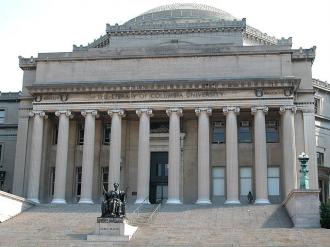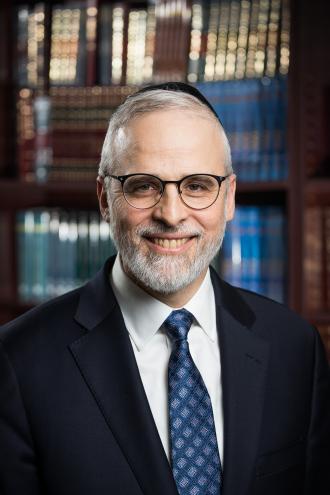President Rivlin: "Israeli society today finds itself at a crossroads - to be or not to be."
A year after his 'Four Tribes' address at the Herzliya Conference, on the issue of the changes in Israeli society, President Reuven Rivlin hosted at the President's Office the 16th annual Herzliya Conference, entitled "A shared Israeli hope: Vision or dream?" Also speaking at the conference at the opening day session at Beit Hanasi. were President of the World Jewish Congress, Ambassador.Ronald Lauder, Director of Institute for Policy and Strategy, IPS, Prof. Alex Mintz, Director General Office of President Harel Tubi, Minister for the Interior, Development of the Negev & Gallil MK Aryeh Mahlouf Deri; Minister of Education, Diaspora Affairs MK Naftali Bennett, Chairman of the Joint Arab List MK Ayman Odeh, Leader of Meretz MK Zehava Galon; President of the IDC Herzliya Prof. Uriel Reichman and President Supreme Court of Israel Miriam Naor.
Chairman of the Opposition MK Isaac Herzog was in the audience, as were numerous present and former Ambassadors, including US Ambassador Dan Shapiro, former US AmbassadoIr Daniel Kurtzer, former Israeli Ambassador to UN Dan Gillerman, Ambassador Gilles Beschoor Plug of the Netherlands and former Canadian Attorney General and Minister of Justice, Irwin Cotler.
This year, the President chose to focus in his address on the four key areas of society which had the ability to serve as engines for change: civil service and government offices, academia and the labor market, cooperation between local authorities, and the education system.
At the beginning of his address, President Rivlin spoke of the criticism he had received following last year's speech. He said, "I am a Zionist, because I believe in the need, and the moral right for a national home and nation state for the Jewish people. I am a Zionist because I believe that the establishment of the State of Israel, is the purest expression of the return home of the Jewish people to its history, to its responsibility, and to its destiny. Do I expect or demand that all citizens of Israel be Zionists? No."
The President shared with the audience a question he had been asked by a young Arab student, in a meeting of the 'Educating Israeli Hope' project which took place at religious Jewish high school in Jerusalem. The young girl spoke of her difficulty in singing the Israeli national anthem, and to truly integrate into the Israeli experience as a non-Jewish citizen. The President noted, "Not all the Jews sing the national anthem (HaTikvah), there are Jews who are not Zionists – do they have no right to be Israeli? Is anyone who deals with the issue of Israeli identity a post-Zionist?"
The President stressed, "Israeli society today finds itself at a crossroads. We see the changes before our eyes, and now is the time to decide where we are going. The headline of this conference is, ‘A Shared Israeli Hope: Vision or Dream’. But in truth, the headline of this conference should have been, ‘Israeli hope: to be or not to be’."
The President pointed to Jerusalem as a microcosm of the processes needed to be undertaken in Israeli society, and spoke about the challenges in building shared lives, " Jerusalem – the largest Arab city in the country, the largest ultra-Orthodox city in the country, the largest Modern Orthodox city in the country, and the second largest secular city in the country; the city so beloved, but also so poor, torn, and strained – that market forces alone, and exchanges of good-will alone, between individuals and organizations as moral as they may be, cannot deal with such a great challenge."
The President warned that the institutions and organizations that managed our lives were yet to structure themselves in a way that would help bring equality between all citizens of Israel from all sectors. He included in this the political system, the media, academia, the labor market, and education. On the issue of education, the President said, "We cannot continue to perpetuate the status quo, and raise our children in the darkness of mutual ignorance, with suspicion and alienation, children who do not speak Hebrew and Arabic, and cannot talk to one another and understand each other. The truth is, I suspect, that in light of the challenge and the complexities, we have over the years given up on education for partnership, and we must not give up on it."
The President pointed to the significant obstacles in the path to change and said, "Political sectarianism which sadly has not evaded any tribe, politics which is nourished and benefits from extremism and radicalization, and serves as a stimulant to the entrenching of tribalism. A public system which has yet to appreciate the changes which Israeli society is enduring, the challenges of the different communities, and which is yet to themselves go through a process of diversification, alongside an entire social system which is based on dividing up the different sectors: by city, by media, by economy, and above all, in education. In such a divisive system, even market forces will not succeed in creating shared interests."
The President indicated the four engines for change and said, "The first such system is that of public and civil service – particularly in government offices. This is a system which has the role and the power to ensure essential equality between the citizens of Israel, from all the sectors, and to strengthen their faith in the State’s institutions. The public system in Israel, will serve as an engine for genuine change only if we strive relentlessly for appropriate representation of the public which it serves, in particular the ultra-Orthodox and the Arab sectors, out of an understanding that a non-diverse make up is dangerous and destructive to the public’s faith in the system, and deals a fatal blow - even today - to its chances of providing a relevant answer to the public, to its diverse customers."
The second area the President highlighted was academia and the labor market. He said, "If in the past the IDF was the main meeting place of Israeli society, in the new Israeli agenda whether we like it or not, academia has become the first place in which Israeli society meets itself and one another. Academia and the labor market are the gates to fulfilling the Israeli dream. They are our admission ticket to the centers of influence in the economy, wherein was first created a common space to forge a common language and goals, where the sense of belonging and social status is formed. Academia and the labor market today cater mainly to two tribes, but there are two more, the ultra-Orthodox and the Arab sectors that are left behind." The President stressed, "Making the most of Israeli personnel and talent, In particular from ultra-Orthodox and Arab communities, is the most important engine for growth at our disposal, and keeps us from a predetermined path of economic collapse."
The third area the President highlighted was cooperation between local and regional authorities in different sectors. He described this cooperation as an opportunity to create common interests and aspirations, an opportunity to create partnership.
The fourth and final area the President pointed to as an engine for change was the education system. "Education toward partnership can and must be an engine of real and significant change, even within the divided educational system whose role and duty is to resoundingly maintain the individual soul and identity of each sector." The President thanked Education Minister Naftali Bennett for his work in this field and said, "The most vital system for change is in your hands. In your hands is an historic opportunity – don't miss it."
The President concluded and said, "These changes will be a badge of honor for a brave and resilient society which ready to look directly at the issue pertaining to its character and future, for a society which serves as a model for others. A Jewish and democratic state, democratic and Jewish is one utterance."
The Herzliya Conference will meet Wednesday and Thursday in Herzliya. Dozens of speakers, round tables, and sessions are scheduled with Prime Minister Benjamin Netanyahu giving the closing address. Friday a trip co-organized by The Israel Project, Israel's Northern Borders: War and Peace in a Volatile Neighborhood, is being offered to international participants.















